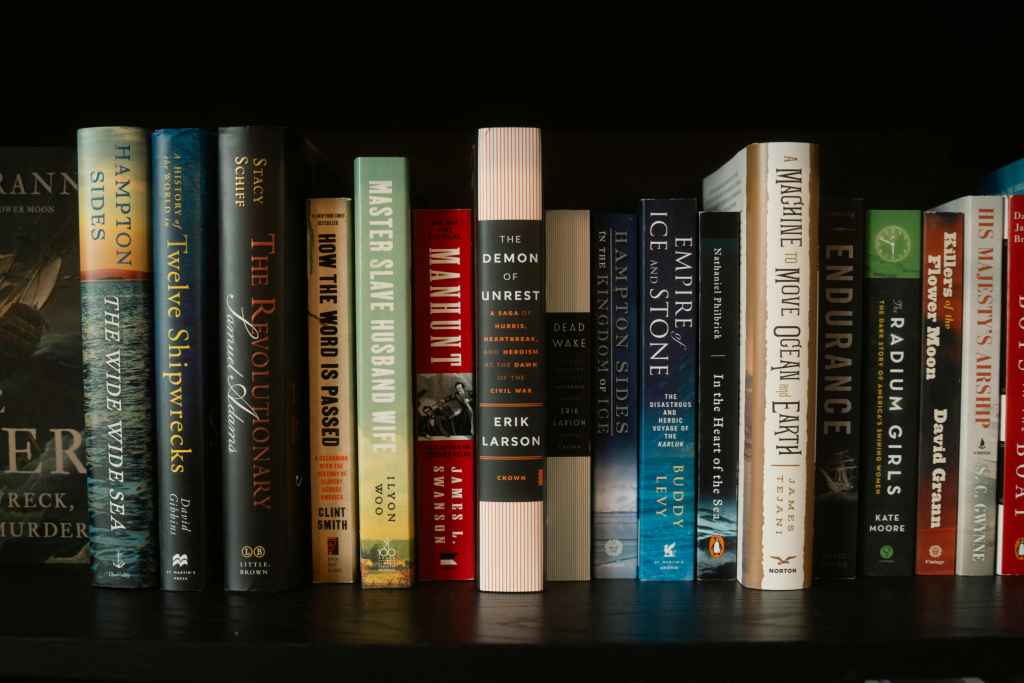
The Genesis of Hart Bound Editing: A Narrative Arc of Passion
The professional journey leading to the establishment of Hart Bound Editing is a narrative arc in itself, illustrating a trajectory from personal passion to dedicated professional service. This transition speaks volumes about the editor’s commitment, suggesting that the venture was not merely a business opportunity but a fulfillment of a genuine aptitude and desire to serve the writing community.
From Community Critiques to Professional Focus
The groundwork for what became her full-time editing career was initially laid through more informal, community-driven activities. Reports indicate that Rebecca Hartwell began her editorial explorations through free critique swaps within various writer groups fostered on social media platforms. This early engagement allowed her to hone her critical eye and develop her understanding of communal feedback dynamics—a practice she reportedly continues to value as a way to give back to the community that supported her initial steps. It’s a reminder that expertise is often forged in the fires of peer review before it’s ever validated by a contract. A significant pivot point seems to have occurred around the year preceding recent features, when she made the deliberate choice to professionalize this aptitude. The launch of Hart Bound Editing marked a decisive step into making this expertise her primary focus, an occasion described as both exhilarating and somewhat surreal upon securing the first paid client. This was the moment the passion project took its final, serious form.
Learning from the Editorial Trenches
Crucially, her transition was heavily informed by her own history as a writer navigating the editorial landscape. Being an author herself provided an invaluable, front-row seat to the quality of editorial communication—both the immensely helpful and the profoundly disappointing. This duality furnished her with a clear, internalized list of professional “dos and don’ts” for her own practice. She is quoted as being grateful for early career experiences where communication missed the mark, as these moments provided vital lessons that fueled the improvement of her own client-facing procedures. Furthermore, her history of receiving developmental edits instilled a deep empathy for the vulnerability authors experience when sharing their nascent work, a perspective that shapes the supportive tone of her professional interactions today. It’s hard to forget what it feels like to receive blunt feedback when you’ve poured your soul onto the page, and that empathy becomes a core operational principle. For more on how to navigate that feedback process, you might look into resources on Author Feedback Management.
A Deep Dive into Genre Expertise: The Specialist’s Edge. Find out more about Developmental editor fantasy manuscript evaluation.
While developmental editing is applicable to any narrative form, Rebecca Hartwell has carved out a distinct area of mastery, focusing on genres that demand intricate layering and robust internal logic to succeed in the marketplace. This specialization allows her to bring a highly informed lens to manuscripts, recognizing genre conventions and reader expectations with precision. This focus is key to understanding modern publishing success.
The Intricate Nuances of Fantasy Manuscript Evaluation
Her specialization in the fantasy genre is perhaps the most frequently cited aspect of her professional identity. Fantasy novels often require immense structural support due to their need to establish entirely new rulesets, histories, and geographies. Hartwell’s work in this area involves ensuring that the magic system, for instance, adheres to consistent internal rules—the crucial element that keeps readers from questioning the narrative contract. It also means ensuring worldbuilding details serve the plot rather than overwhelming it, and that character motivations align with the stakes inherent in their fantastical circumstances. Expertise here means knowing not only *how* to structure a story generally, but understanding the particular beats that satisfy readers within specific sub-niches of the fantasy realm, sometimes involving deeply ingrained Fantasy Genre Tropes that must be respected or subverted with clear intent.
Cross-Genre Proficiency: History, Romance, and Material Culture
Though fantasy is a primary focus, her skill set has proven highly transferable and sought after in related genres. Her practice also extends significantly into romance and historical fiction. For historical fiction, her documented background in historical fashion, including an associate’s degree in design with specialization in historical costume spanning from ancient Rome through the Second World War, offers a rare and potent advantage. This deep knowledge base—covering trade routes, dyes, embroidery, and socio-economic influences—can be leveraged to ground the narrative’s setting with authentic, well-researched detail, ensuring the world feels both rich and credible to the discerning reader. This cross-genre proficiency demonstrates a mastery over craft principles that transcend the specific trappings of any single category. It’s a powerful example of how outside knowledge can directly inform narrative credibility. Speaking of credibility, understanding the mechanics of story structure is often informed by external methodologies; for instance, many find immense value in learning about Story Structure Methodologies.
Hartwell’s Foundations: Unschooling, Journalism, and Hitting the Wall
Understanding the editor’s professional output requires an appreciation of the unique path that shaped her worldview and creative sensibilities. Her personal history, far from being a mere biographical footnote, is presented as foundational to both her writing and her empathetic approach to editing.
The Power of Self-Directed Immersion. Find out more about Collaborative approach to structural editing for authors guide.
A significant biographical detail often mentioned is her experience of being unschooled throughout her formative years. This educational path is frequently connected to a heavy reliance on reading as a primary mode of learning, fostering a voracious appetite for literature, especially fantasy. This self-directed immersion in stories, combined with make-believe play from childhood, created a deep, internalized narrative sense—a feeling for story that formal education sometimes struggles to instill. Interestingly, despite coming from a family with a long legacy in journalism, she did not initially view writing or editing as a viable career path for herself. A period described as hitting a “rock bottom” in late two-thousand-nineteen and early two-thousand-twenty appears to have been the crucible moment that redirected her focus, leading her to take her own storytelling ambitions seriously and subsequently dive into the deep end of novel writing around that time. It underscores a powerful truth: sometimes the deepest professional clarity is found only after navigating personal darkness.
Consuming the Craft Canon
Rebecca Hartwell’s development is clearly not reliant on formal, singular pathways, but rather on a continuous, hungry consumption of external resources. She conveys a philosophy that successful authors, regardless of their starting point, must seek out and integrate knowledge from diverse sources. When asked for recommendations, she highlights several key texts that have influenced her understanding of story mechanics. These include craft guides such as Shawn Coyne’s “The Story Grid,” Gwen Hayes’ “Romancing the Beat,” and Jessica Brody’s “Save the Cat! Writes a Novel.” She maintains that even if one does not follow a specific methodology entirely, these resources invariably contain invaluable “nuggets of gold.” For those interested in deep dives on these topics, seeking out resources on The Story Grid itself can be highly beneficial. Furthermore, for those navigating the business side of authorship, particularly in the independent publishing sphere, she points to influential figures like Mark Dawson, Joanna Penn, David Gaughran, and Bryan Cohen as essential voices for entrepreneurial writers. This holistic view—understanding both the artistic structure and the commercial reality—is a hallmark of her grounded approach.
Practical Advice from the Editor’s Chair: Starting and Ending Strong
Drawing directly from her dual role as both an author wrestling with creation and an editor assessing structure, Hartwell offers concrete, high-impact advice concerning two of the most challenging aspects of novel writing: the commencement and the cessation of the narrative journey.
Mastering the Opening Scene: Something Must Go Wrong. Find out more about Fantasy worldbuilding logic and magic system editor tips.
A common hurdle for many writers is crafting an opening that immediately seizes the reader’s attention and compels them to continue. Hartwell champions the classical concept of *in medias res*—beginning the story directly within the action. However, she refines this advice with a crucial, practical application: her favorite counsel is to open the story with *something going wrong*. This initial disruption does not need to be the story’s main cataclysm; rather, it should function as the very first visible symptom of the larger conflict destined to unfold. By introducing immediate tension, the narrative bypasses lengthy exposition and immediately engages the reader’s curiosity about the cause and consequence of that initial wrongness. Here’s the actionable takeaway:
- Identify the central conflict of your second act.
- Determine the smallest, most visible symptom of that conflict.
- Start your very first scene with that symptom actively manifesting and disrupting the protagonist’s day.
This immediately gives the reader a question to chase, a classic SEO principle applied to prose: immediate user intent satisfaction, or in this case, narrative intrigue.
Achieving Satisfying Conclusions Through the Win-Loss Balance. Find out more about Editor specializing in historical fiction costume knowledge strategies.
When discussing the conclusion of a novel, the concept of ‘satisfying’ is often genre-dependent, yet Hartwell posits a near-universal requirement for achieving it across most narrative forms: the essential presence of a “win-loss” scenario. This concept is vital for ensuring an ending resonates long after the final page is turned. The balance works in two ways:
- If the protagonist achieves their primary, long-sought-after goal: That victory must be tempered by an unexpected, perhaps painful, price they were not fully prepared to pay. This adds gravity and realism to the success.
- If the protagonist fails to secure the main objective they chased throughout the narrative: That failure must be offset by tangible, positive gains achieved along the journey—a sense that the ordeal was worthwhile for the personal development or secondary victories realized.
This balance, this bittersweet acknowledgment of cost versus reward, prevents endings from feeling either too simplistic or too bleak, thus delivering a deeper resonance to the reader. It’s the difference between a neat bow and a lasting impression. If you are wrestling with plotting the end game, a solid understanding of Character Arc Development is indispensable.
Beyond the Desk: A Multifaceted Individual Fuels Insight
The depth of Rebecca Hartwell’s understanding of narrative is enriched by a life lived across several diverse domains, suggesting that her analytical skills are honed by a broad spectrum of creative and technical pursuits outside the immediate scope of manuscript review.
The Intersections of Craft, History, and Community. Find out more about Developmental editor fantasy manuscript evaluation overview.
Her professional life is visibly interwoven with other, seemingly disparate, passions. Beyond her expertise in the literary world, she possesses a significant, practical background in historical fashion and costume creation. This area of knowledge, cultivated through an associate’s degree and fifteen years of dedicated research and recreation of clothing from antiquity through the mid-twentieth century, provides a fertile ground for understanding material culture, trade, and the visual representation of history—all invaluable components for historical fiction and richly detailed fantasy settings. It allows her to check the texture of the world, not just the plot. Moreover, her continued engagement in community critique groups underscores a commitment to the craft that extends beyond transactional client work, reflecting a desire to be an active participant in the ongoing cultivation of writing talent.
Rhythm, Timing, and Narrative Flow
The personal tapestry of her life also includes engaging creative outlets such as performing Irish Traditional music, both playing and singing, and the activity of swing dancing. These activities, which demand rhythm, timing, improvisation within structure, and a deep connection to performance dynamics, offer unique parallels to narrative pacing and flow. An understanding of musical timing and stage presence can subtly inform an editor’s ear for scene cadence and the necessary beats required to build momentum in prose. For instance, recognizing when a scene needs a slow, lingering note versus a sharp, staccato burst of action is informed by this kind of rhythmic sensibility. It speaks to a holistic approach to creativity, where diverse artistic disciplines feed into and strengthen the core work of structural analysis and narrative empathy. A strong narrative needs flow, much like a complex piece of music requires consistent Narrative Pacing Principles. If you are an author, consider how your personal hobbies might inform your writing structure—it could be the secret sauce.
Envisioning the Long-Term Impact of Editorial Work: Building Legacies
For Rebecca Hartwell, the practice of developmental editing is imbued with a profound sense of purpose that extends far beyond the contractual obligations of a project. It is intrinsically linked to a vision of what great storytelling can achieve in the broader cultural landscape.
The Aspiration to Build a Thousand Author Legacies. Find out more about Collaborative approach to structural editing for authors definition guide.
When contemplating her long-term professional goal, Hartwell speaks not of personal accumulation of success, but of the impact she wishes to facilitate for others. Her stated ambition is to construct a legacy defined by enabling others to realize their own creative legacies. She frames herself as striving to be the “quality foundation” upon which a multitude of authorial careers and stories can flourish. This altruistic perspective suggests that for her, the highest achievement is not solely the perfect manuscript, but the creation of a strong launchpad from which an author can successfully launch their unique voice into the world, securing their own place in the literary conversation. This is an editor as an enabler, not merely a gatekeeper.
Stories as Catalysts for Tangible Change
Underpinning this aspiration is a deeply held conviction regarding the intrinsic value of narrative itself. She believes that expertly crafted stories possess the inherent power to alter lives—both for the person who painstakingly brings the narrative to fruition and for the readers who immerse themselves in its world. This transformative capability is viewed as having tangible, meaningful, and potentially enduring consequences. Therefore, the rigorous work of developmental editing becomes more than an editorial service; it is an act of ensuring that a story, once struggling or uncertain in its execution, is honed and shaped into an exceptionally impactful piece capable of achieving that profound, life-changing effect on its intended audience. This elevates the entire sector of structural editing to a critical role in the ecosystem of modern storytelling. For an exploration of this theme across genres, you might want to examine the impact of Genre Fiction on Culture.
Key Takeaways and Actionable Insights for Your Manuscript
Understanding a specialist’s philosophy is best followed by applying its core tenets to your own work. Rebecca Hartwell’s approach boils down to structure, empathy, and genre precision. If you are currently wrestling with a manuscript, ask yourself these critical questions, grounded in her methodology:
- The Structural Audit: Can you summarize your plot’s core structure—inciting incident, midpoint, climax—in three sentences? If not, the macro elements need reinforcement.
- The Empathy Check: How did you feel receiving feedback on your last major revision? If you felt attacked rather than guided, review your own processes for giving and receiving critique. Foster that supportive partnership mindset.
- The Genre Contract: Are you honoring the implicit promises you’ve made to a fantasy, romance, or historical fiction reader? Does your magic system have rules? Does your romance earn its emotional payoff?
- The Opening Test: Go back to page one. Is *something* going wrong? If your character is calmly making coffee without external pressure, the *in medias res* opportunity is being missed.
- The Conclusion Resonance: Does your ending feel earned because it is bittersweet? Ensure your hero paid a real price for the win, or found meaningful secondary gains in failure.
The philosophy of a genre specialist like Rebecca Hartwell reveals that editing isn’t about erasing the author; it’s about revealing the strongest possible version of the author’s vision through meticulous structural engineering. It’s about ensuring the story—that powerful, life-altering catalyst—is built to last. What is the biggest structural question you have about your current draft? Share your thoughts below and let’s keep the conversation on craft moving forward!







